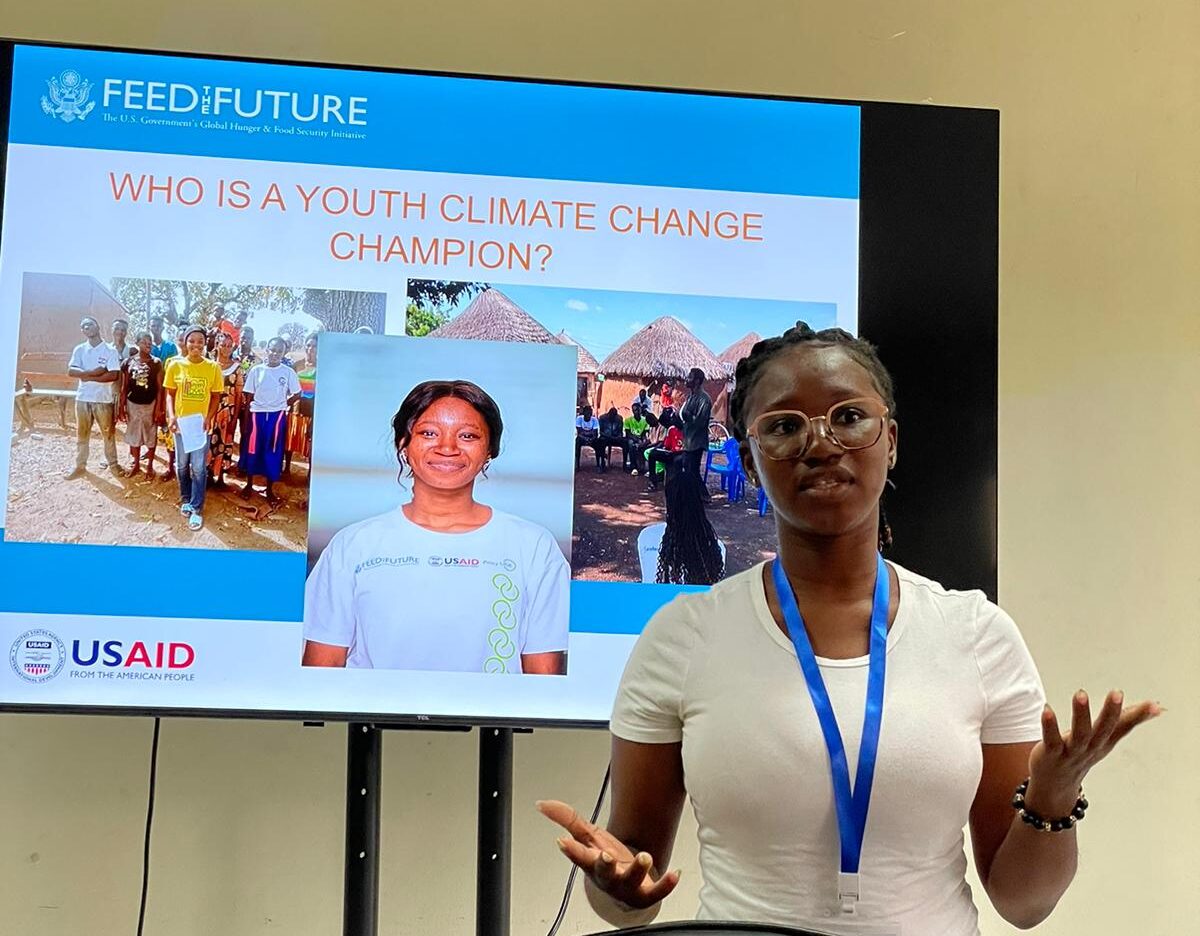
In Ghana, the climate crisis looms as a critical threat to the future of its youngest citizens. According to UNICEF’s 2021 Climate Change Risk Index, Ghana ranks 35 out of 163 countries where children face the highest climate risk, with its youth demonstrating extremely high vulnerability to climate and environmental shocks. This stark reality means that a child born in Ghana today may face the prospect of becoming a climate refugee within their own country, as changing weather patterns and environmental degradation threaten livelihoods and displace communities. The climate crisis is, in essence, a child rights crisis, jeopardizing the chance for Ghana’s youth to have a decent life.
Ghana’s youth are taking their future into their own hands. They are increasingly engaged in climate issues, thanks in part to the role of social media in spreading information and fostering activism. With proper support and empowerment, these young individuals can become powerful advocates for change, turning their passion and energy into meaningful action to combat the climate crisis and secure a more sustainable future for Ghana.
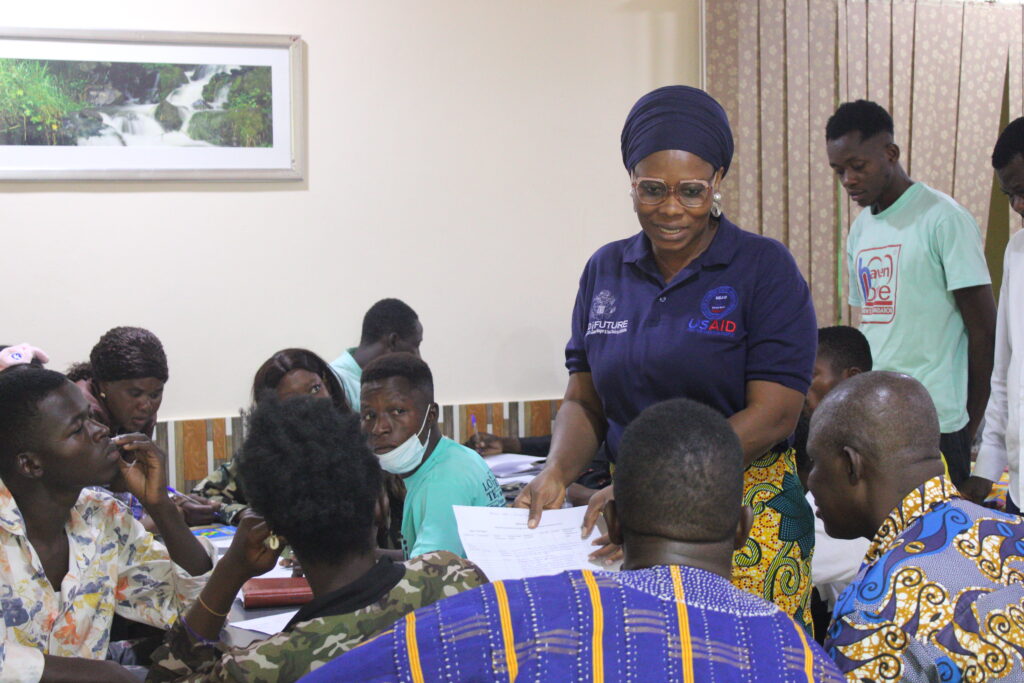
The Feed the Future Ghana Market Systems and Resilience (MSR) Activity launched the Youth Advocacy on Climate Change and Mitigation (YACCM) master training program with this mission in mind. Through YACCM, 228 youth (130 women, 98 men) were trained as climate change champions and now spearhead climate action across 16 districts in Ghana’s northern regions. Supported by state agricultural extension agents and the National Youth Authority (NYA), these young advocates conduct cascade training sessions, equipping their peers with the knowledge and tools to combat climate change and its impacts on agriculture. From this, participants have identified context-specific climate actions and prioritized sustainable agricultural practices.
The Ghana MSR Activity highlighted the work of two of these remarkable youth climate champions, Juliet Ako from Tamale and Samuel Djirackor from Bawku West, at the Evidence to Action (E2A) Conference held at the University of Ghana in Accra on July 25.
On the second day of the conference, Juliet and Samuel took center stage in a breakout session, sharing their experiences as youth climate change champions and detailing the step-down trainings they have led in communities across Ghana’s northern regions. Their presentation highlighted the comprehensive nature of their work, covering crucial topics such as afforestation, pruning techniques, bushfire prevention, integrated pest management, and climate-smart agriculture.
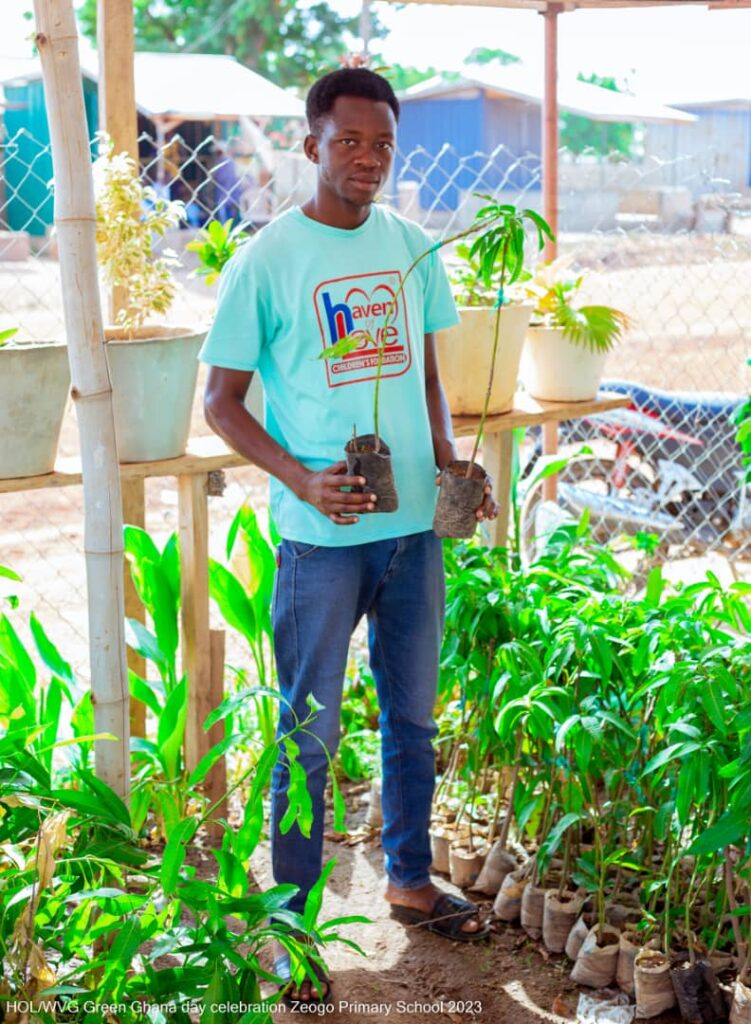
The youth champions explained their diverse approach to community engagement, including focus group discussions, one-on-one interactions, community forums, and even a community durbar (community meeting involving the chiefs and opinion leaders). Juliet shared a particularly moving anecdote about her engagement with a chief in Gupanarigu, describing how their discussions led to a significant shift in his perspective on tree-cutting practices. The chief began to support their trainings saying, “We see that now the climate change champions are more involved in community activities and they have interest in protecting the trees and other resources. They are no longer onlookers, but community youth leaders.”
Samuel, representing the Haven of Love organization, excited the audience with news of their innovative moringa nursery project. He outlined the progress of a pilot moringa farm, emphasizing its potential to create economic opportunities for local youth while contributing to climate mitigation efforts. Samuel also shared his recent feature on JoyNews (the leading Ghanaian news network) for an award his organization had won, further highlighting the impact and recognition of their work.
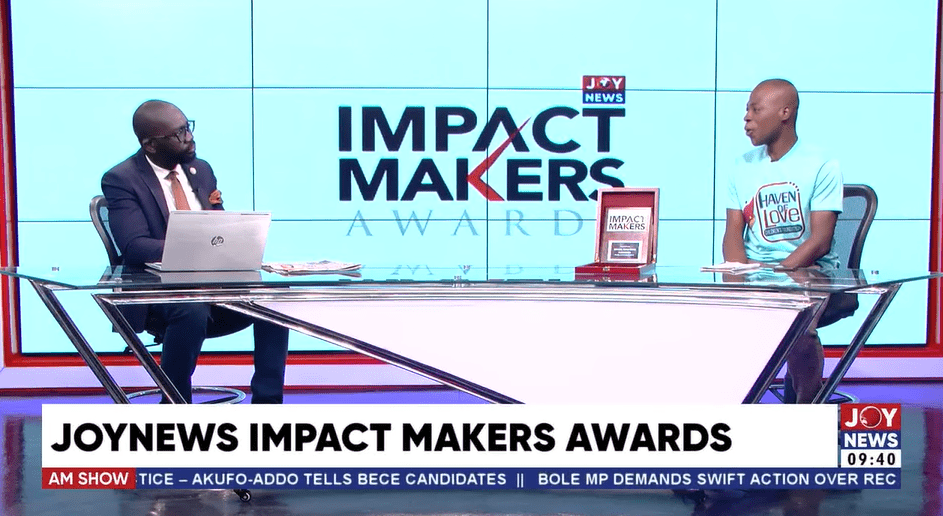
The presentation also showcased the impressive reach of their initiative. Through the Youth Advocacy on Climate Change and Mitigation (YACCM) master training program, the 228 original climate change champions have gone on to host 126 cascade trainings, reaching a remarkable 6,166 peers (3,416 women and 2,750 men).
The audience, comprised of several hundred attendees from diverse backgrounds, was visibly engaged throughout the presentation. Representatives from international NGOs, academic institutions, private sector partners, public sector officials from Ghana and beyond, financial institutions, and civil society organizations from across Africa and the United States were in attendance.
During the Q&A session, the youth champions fielded a variety of thought-provoking questions. Attendees were particularly interested in understanding youth perceptions of climate change, the champions’ efforts in advocating for climate-friendly by-laws in their communities, and specifics about the types of trees being planted in their afforestation efforts.
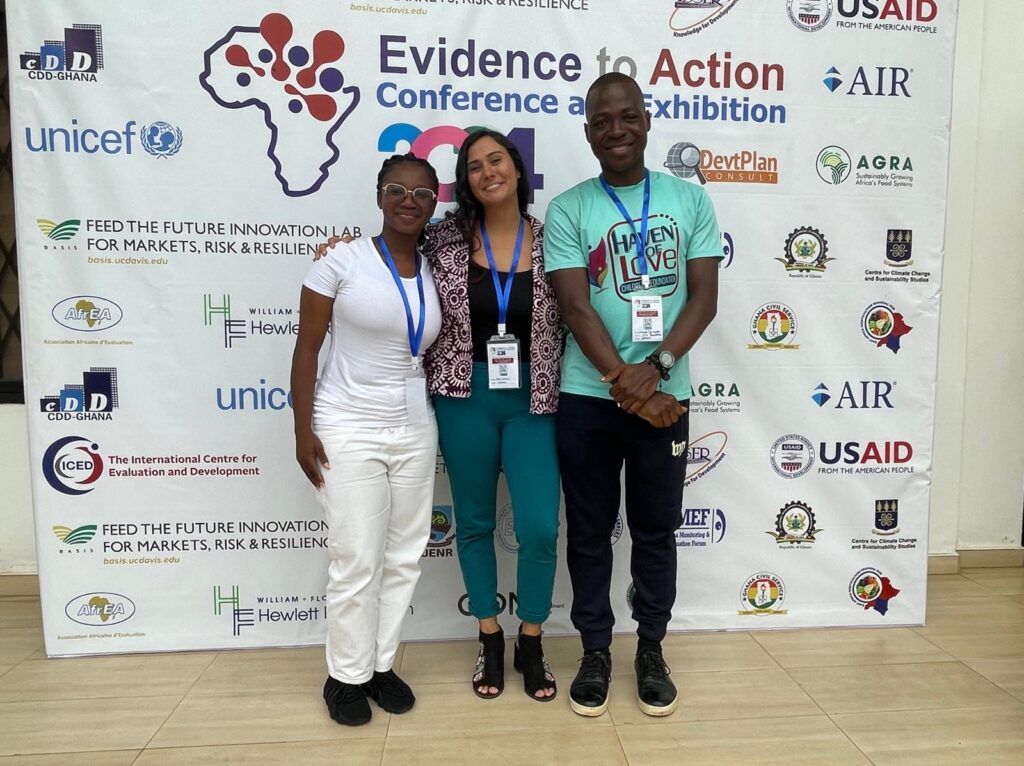
Samuel closed the session by sharing about the changing roles he sees in youth engagement. “The climate change champion training transformed our youth into proactive leaders, equipping them with the skills and knowledge to drive sustainable practices within their communities,” he said. The youth appreciated the trainings not only to acquire technical, leadership, and soft skills essentials to address climate challenges but also as a structured space to apply those skills in cascade trainings and network development. For Juliet, the conference itself was a space of inspiration, saying: “It is refreshing to see a lot of people who share your passion all gathered in one place. I am encouraged to continue doing the little I can in my corner because I am positive knowing I am not alone in the fight.”
The presentation by Juliet and Samuel not only showcased the power of youth-led climate initiatives but also demonstrated the far-reaching impact of the YACCM program. Their passion, knowledge, and achievements left a lasting impression on an international audience. The event was also an opportunity for Juliet and Samuel to expand their networks, scale their impact, and inspire similar youth-driven climate action initiatives across the continent and beyond.
Learn more about the Feed the Future Ghana Market Systems and Resilience Activity.
Learn more about our work in Ghana.





